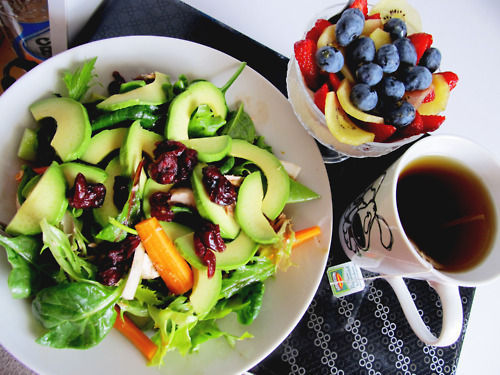Why Yo-Yo Dieting Is Bad for You
Last spring you reached your goal weight and celebrated by hitting the beach in a bikini. Then your job got stressful, you had trouble finding time to work out, and your cruise vacation had a round-the-clock all-you-can-eat buffet. Now when you step on the scale, you realize there's no way you're going to fit into the dress you bought for your friend's wedding next month unless you start dieting...again.
We're betting that this scenario sounds all too familiar. Yo-yo dieting — or weight cycling, as experts call it — is practically a national pastime. An estimated 54 percent of people in the United States are currently trying to shed pounds, fueling a $59-billion-a-year industry of supplements, books, and packaged foods that promote weight loss, according to Marketdata Enterprises, a marketing research group. But our efforts don't stick. Most of us will regain almost all of what we lost, according to research, which is why the typical dieter tries a new plan four times a year. "We have this mentality that a diet is something to go on and then get off as quickly as possible," says FITNESS advisory board member Madelyn Fernstrom, PhD, founding director of the University of Pittsburgh's Weight Management Center. "But lasting weight loss requires making lifestyle changes that will work long-term."
It's not only your waistline that suffers from yo-yoing. "Repeated crash dieting increases metabolic hormones, such as insulin, and elevates levels of sex hormones, including estrogen," says Andrea Pennington, MD, author of The Pennington Plan for Weight Success. "These changes cause you to start putting on weight around your middle, which research has linked to insulin resistance, diabetes, high blood pressure, and heart disease."
Your confidence also takes a hit. "The more times you go through the gain-lose-gain cycle, the less convinced you become that you can break free from the constant ups and downs," says Keri Gans, RD, a dietitian in private practice in New York City. "No one wants to diet forever; it's hard work."
Which is why we know you're ready to lose the weight and keep it off. Here top experts spill the success secrets that will help you balance the scale for good.
Tips to Stop the Yo-Yo Cycle
Soothe Without Food
You've got a looming deadline at work, your in-laws are coming to town, and the house is a mess. Before you know it, you've demolished an entire bag of chips while freaking out over your to-do list. "Stress eating can quickly turn into a binge: We don't register what we're munching on because the food's going down so fast," says Martin Binks, PhD, assistant consulting professor at Duke University Medical Center in Durham, North Carolina. Make a list of calming strategies that don't involve reaching for the cookie jar, Binks suggests. When you feel overwhelmed, consult your list and pick out something you can do in the next 10 minutes. Go for a quick walk or post a Facebook status update. Either will distract you long enough for your stress levels to come down.
Change Your Goals
There will always be a reunion, wedding, or vacation to slim down for. But once the big event has come and gone, what will keep you from splurging on dessert every night? "With special-occasion weight loss, it's all about dropping pounds quickly," Fernstrom says. Do this too often and you may find that it's even harder to lose than before. "Constant crash dieting causes your body to cling to the calories you do eat because it's not sure when it's going to get more," she explains. Rather than keep the pounds off just long enough to impress strangers on your vacation, think about rewarding long-term achievements. Maybe you want to train for your first half-marathon or get in shape to hike the Grand Canyon. Setting a big new goal each time you check one off your list will keep you headed in the right direction.
Scale Back
Yes, the point of dieting is to ditch pounds, but focusing solely on calories in and calories out can make it hard to stick to your plan if you aren't seeing results. "Even if you're doing everything right, your weight can fluctuate based on the time of day or how hydrated you are," says Evelyn Tribole, RD, coauthor of Intuitive Eating. In fact, research shows that women who fixate on counting calories and restricting their food intake report more stress and have higher levels of cortisol, which is linked to overeating. "Instead of obsessing about every morsel, think about how eating right and exercising make you feel," Tribole says. "Do you have more energy? Are you able to keep up with your kids?" If you take the time to notice the positive effects of each healthy behavior — whether it's pushing away from the table before you clean your plate or biking for 30 minutes a day — it's easier to motivate yourself to stay on track.
Share Your Meals
Studies show that tracking what you eat every day can help you lose up to twice as much weight as people who wing it. But forget the pen and paper. Social-networking Web sites like TweetWhatYouEat.com and FoodFeed.us upgrade old-school food diaries and give you something a journal can't: a virtual support group. "It's much easier to pass up the piece of cake when you know that other people are going to hold you accountable," Fernstrom says. Plus, your online pep squad will provide you with the support you need to stay on track.
More Stick-to-It Weight-Loss Strategies
Kick It Up a Notch
Your weight isn't the only thing that can yo-yo; motivation can wax and wane too. Instead of skipping your workout when you're feeling less than inspired, get over the hump by intensifying your efforts. "Pushing yourself a bit harder than usual shows that you can take on and tackle tough challenges, which boosts your confidence," says Christina R. Johnson, PhD, professor of sport and exercise psychology at the University of Iowa in Iowa City. The more pumped you are, the easier it is to bounce back from inevitable setbacks and plateaus. The next time you're dragging, partner with a faster friend for your usual four-mile run or opt for the advanced yoga class rather than the intermediate one.
Know How Low You Should Go
If you find yourself stuck at a certain weight for more than a month, it could be that you're fighting an unnecessary battle. "You may want to be 130 pounds, but if you're doing everything you can — watching portions and exercising — it may not be right for your body," Gans says. To gauge whether you've lost enough weight, take a good look at your body. If you've got a lot of excess around your tummy, you probably should keep trying to lose a few more pounds, Dr. Pennington says, since belly flab is linked to heart disease, diabetes, metabolic syndrome, and even cancer. But if the fat is in your hips and butt and your body-mass index is within a healthy range (18.5 to 24.9), it may be time to stop dieting and start maintaining.
Find a Success Story
You know that sticking to a diet is easier if you have a friend who is also shedding pounds. But teaming up with someone who has already lost the weight and kept it off can be even more useful, says Judith S. Beck, PhD, author of The Beck Diet Solution. "A mentor can empathize, help you navigate potential pitfalls, and remind you of how good it feels to be in control of your body," Beck says. You can find your own successful loser on our message boards or at group meetings of a program like Weight Watchers.
Make a Clean Sweep
A messy house can interfere with your efforts to make smart choices, says Peter Walsh, an organizational expert and author of It's All Too Much. It's hard to feel inspired to hit the treadmill if it's serving as a clothes hanger or to go for a walk if you can't find your sneakers. Plus, "an overflowing pantry or fridge makes it more likely that at mealtime you'll opt for takeout or packaged food instead of digging around to see if you have healthy ingredients to cook," Walsh explains. A few hours spent cleaning can do wonders for your waistline. Walsh suggests starting with the kitchen: Clear the counters so you have no excuse not to prepare meals. Then clean out and restock your pantry and fridge with good-for-you picks — fruits, vegetables, lean meats, soups, and whole grains. It's simple to whip up a quick, satisfying dinner when you know you've got tasty foods on hand.
Source




0 Response to "End the Yo-Yo Diet Cycle"
Post a Comment